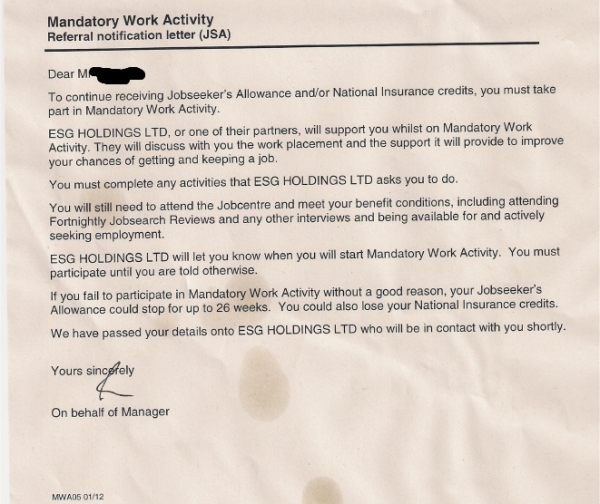I’ve just come across this government document “Residential Training Provision – Independent Advisory Panel Report” [PDF] and I’m freaking out a bit. I may be wrong - I’m too exhausted to get through the whole document - but it’s full of scary statements.
“Although the primary focus of the panel’s work has been to review the provision of what is often referred to as specialist disability employment training as delivered by Residential Training providers, the panel has been mindful of other DWP programmes such as Work Choice and Work Programme and note the disappointing statistics published recently.”
The document is a review of residential training for disabled people. It makes plenty of reference to “markets”, to “cost/benefit analysis” and to how the programme is great because it is “intensive”. It doesn’t make any mention of the potential health impact of an intensive course on a sick or disabled person, or the practicalities of being away from home with familiarity, provisions for medicines and care, or the impact of upheaval and stress of being forced to go away. In my opinion the most scary statement is this one:
“In the vast majority of cases, the type and severity of a person’s impairment/health condition has little bearing on their ability to secure and sustain employment”
It seems that plans are already in place to send a lot more people on such residential training.
“If the provision continues following this review it will be subjected to an open competition to tender for contracts for provision post August 31st 2014.”
There are plans for non-disabled people too.
The panel considers that the provision can be improved in the following ways:
1) Increase numbers that use the residential element including reaching out to nondisabled people who are long term unemployed and would specifically benefit from the provision e.g. they would benefit from a holistic and intense approach. It could be more cost effective to increase numbers of RT trainees, as the unit cost of provision would then be driven down.
Read the full document - Residential Training Provision – Independent Advisory Panel Report” [PDF]
UPDATE
This isn’t what I thought it was on first impressions, however I still have serious reservations about it. As is pointed out in the comments below:
“This is talking about residential colleges that currently exist that are primarily for adults with severe learning difficulties and/or multiple complex needs. When people in that group reach 19 it often their fervent wish to go to one of these residential places and they often don’t get the chance.”
So, I can see that this can be a positive thing in some circumstances and I was wrong to call it a work camp. However, the attitude of the review bothers me a lot. To claim that impairments and health conditions don’t keep people out of work is just plain wrong. Overcoming barriers in society can only get someone so far; sometimes an impairment just will not let a person work. The suggestion to roll this scheme out to long-term unemployed people shows there is a view that this “holistic intensive approach” is to be used elsewhere, and my fear is that it will be applied to people who are significantly sick or disabled but unlucky enough to be in the work related activity group for ESA. Combined with the DWP’s penchant for sanctions this could be a very bad thing. Also not addressed is how sick and disabled people will function away from their support structures at home.












